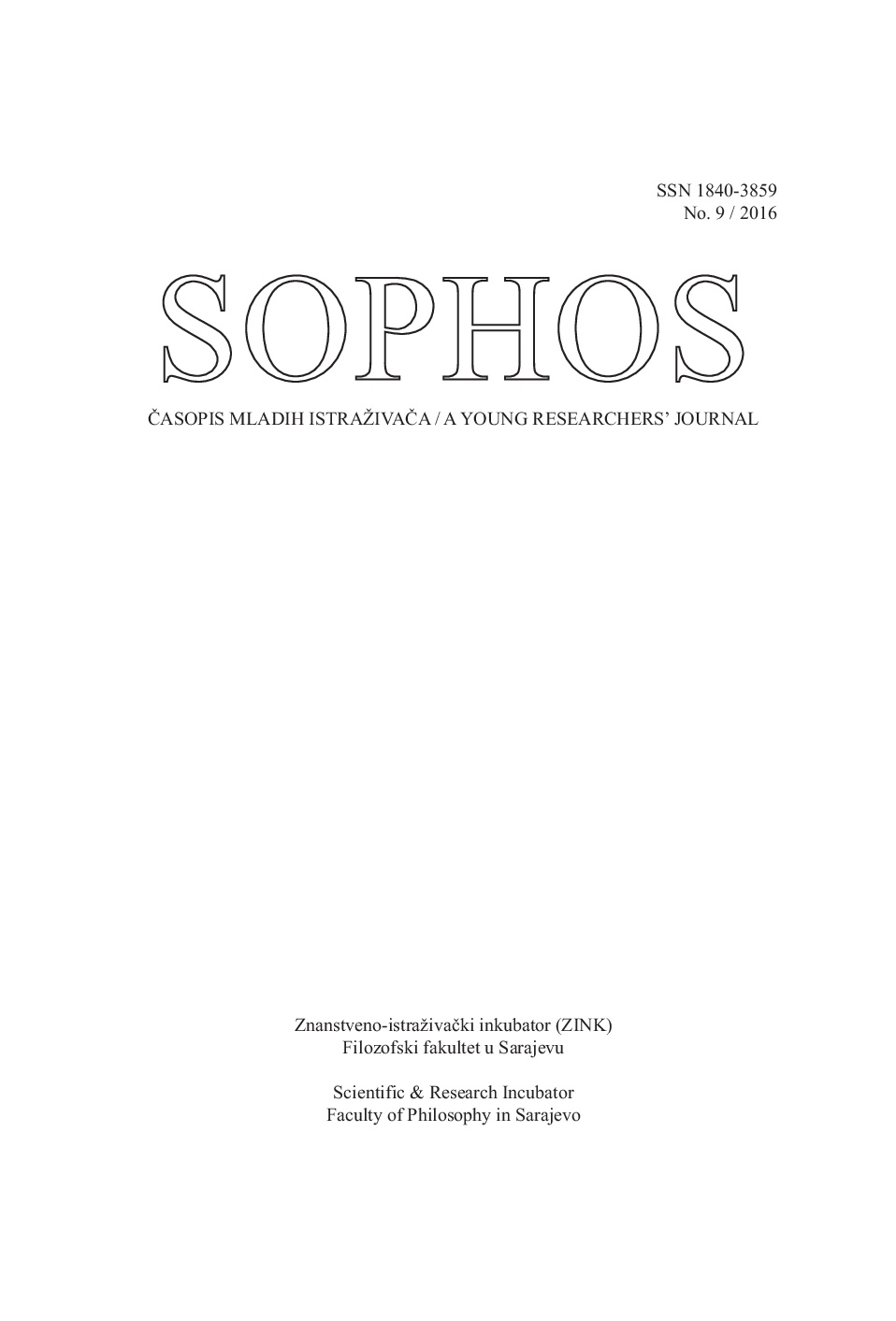Prediktori zadovoljstva životom u trećoj dobi
Predictors of Life Satisfaction in Senior Age
Author(s): Katarina Mišetić, Indira FakoSubject(s): Experimental Pschology, Health and medicine and law, Demography and human biology, Gerontology
Published by: Filozofski fakultet u Sarajevu - Znanstveno-istraživački inkubator
Keywords: life satisfaction; social and demographic variables; personality traits; self-rated health; loneliness;
Summary/Abstract: The aim of the study was to investigate the possibility of predicting life satisfaction with regard to knowledge of demographic variables, personality characteristics, loneliness and self-assessments of health, and to examine the differences in the assessment of life satisfaction according to sex, age, place of residence and level of education. The aim of the study was to investigate the possibility of predicting life satisfaction. The sample included 209 respondents, of which 108 respondents live in the Cantonal public institution “Gerontology Center” Sarajevo (60 women and 48 men) and 101 in their own homes (70 women and 31 men). Of the total sample, women comprise 62.2% (N = 130), and men 37.8% (N = 79). The average age of the total sample was 75.59 (SD = 7.62). Data was collected individually and the following instruments were applied: Questionnaire of socio-demographic data, PFM - Scale of self-assessment for the Big Five, The short version of UCLA’s loneliness scale, SF-36 - Questionnaire of health status, Life satisfaction scale. The research results show that the proposed model can explain 68.6% variance of the criteria, with the most significant predictors being religiousness, personality dimensions: neuroticism and openness, loneliness and general self-rated health. Other socio-demographic variables are associated with life satisfaction through mediation variables: the amount of revenue through openness to experience, age over the general self-assessment of health and education through the mediating variables neuroticism. Differences are also found in life satisfaction within the senior age with regard to gender, age, place of residence and level of education. Men, people of younger age groups, people living in their own household and educated people show a statistically significant higher level of life satisfaction.
Journal: Sophos- časopis mladih istraživača
- Issue Year: 2016
- Issue No: 09
- Page Range: 121-156
- Page Count: 36
- Language: Croatian

